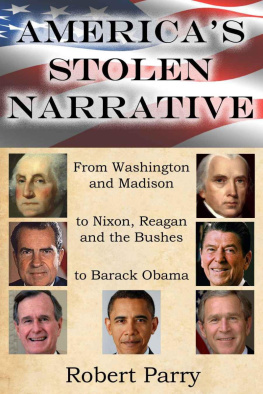Barakaldo Books 2020, all rights reserved. No part of this publication may be reproduced, stored in a retrieval system or transmitted by any means, electrical, mechanical or otherwise without the written permission of the copyright holder.
Publishers Note
Although in most cases we have retained the Authors original spelling and grammar to authentically reproduce the work of the Author and the original intent of such material, some additional notes and clarifications have been added for the modern readers benefit.
We have also made every effort to include all maps and illustrations of the original edition the limitations of formatting do not allow of including larger maps, we will upload as many of these maps as possible.
THE STOLEN TRAIN
BY
ROBERT ASHLEY
The Great Locomotive Chase
In the East, the first twelve months of the Civil War went badly for the Union Army. Soundly trounced at Bull Run in July, 1861, the Federals had been reorganized and whipped into shape by General McClellan, the Young Napoleon. But the Young Napoleon was a timid and hesitant field commander, ingenious at inventing excuses why he could not attack the enemy. As the war entered its second twelve months, McClellan had not yet taken decisive steps to besiege the Confederate capital at Richmond or to engage the Southern Army.
But in the West, President Lincoln had at least two leaders with a talent for rapid, determined action. One, of course, was Unconditional Surrender Grant; the other was a pint-sized general named Ormsby Mitchel. In the early months of 1862, General Grant captured forts Henry and Donelson, striking the first blows to gain control of the Mississippi River for the Union cause. About the same time, General Mitchel began a bold, swift movement toward the important Confederate railroad and supply center at Chattanooga, Tennessee. Capture of this city would isolate the Southern Army in the West and prevent the strengthening of the forces facing Grant.
On the evening of Sunday, April 6, a Federal espionage agent presented himself at General Mitchels headquarters in Shelbyville, Tennessee. His name was James Andrews. He proposed a daring secret raid by disguised Union soldiers deep into Confederate territory. Their objective would be to immobilize the vital Western and Atlantic Railroad between Atlanta and Chattanooga. If successful, the raid would ensure the capture of Chattanooga by cutting the city off from supply and reinforcement. Andrews and Mitchel talked well into the morning, weighing the chances of success, poring over maps, and setting up a timetable. When the two men parted, they had agreed on a plan that involved the Andrews raiders in the stirring episode known as the great locomotive chase. A chase is always exciting, but this one had the unique feature of being acted out not only by human participants but also by the two most famous locomotives of the Civil War, The General and The Texas.
The following is the story of The General, The Texas , and the Andrews raiders. The narrative is based on accounts by two of the raiders: The Great Locomotive Chase , by William Pittenger, and The Adventures of Alf Wilson , by James A. Wilson. With the exception of the boy hero, the raiders are historical characters. Likewise, the incidents described are historical, though somewhat telescoped in the interest of a more unified narrative.
R. A.
1.A Secret Mission
The morning of April 7, 1862, began like every other morning Private Johnnie Adams had known since joining the Ohio Volunteers. Reveille had rudely shattered his blissful dreams of a warm, soft bed at home and a leisurely, tasteful breakfast in the kitchen with his mother. From reveille on, everything had followed the accustomed pattern: a tasteless breakfast hurriedly cooked over a fire in front of his tent and just as hurriedly eaten, assignment to the cleanup detail, two hours of drill under the hot midmorning sun, then another tasteless meal. After lunch, Johnnie had disappeared into his tent, unrolled his blanket, and lain down for an early afternoon nap. By now he had developed a pessimistic attitude about the length of these naps. Invariably his military superiors dreamed up some insignificant assignment and used it as an excuse to interrupt his siesta. The April 7 nap was no exception. But this time the interruption was for no trivial purpose. Nor did the afternoon and evening of April 7 prolong the humdrum routine of the morning. Nor did the days that followed.
Johnnie had hardly closed his eyes after stretching out on his blanket, when the tent flap opened, a head popped in, and a voice said, The Captain wants to see Private Adams.
Here we go again, thought Johnnie resignedly, rising slowly from his blanket. What does he want this time? he grumbled aloud.
Havent you heard? said one of his tentmates. General Mitchels going to make you his aide.
No, bettern that, said another mock-serious voice. Abe Lincoln wants a new Secretary of War.
Aw, shut up, said Johnnie disgustedly, clapping his kepi on his head and stumbling through the tent flap out into the bright noonday sun.
The orderly who had summoned Johnnie was walking rapidly past the long row of tents toward the Captains quarters. Johnnie ran after him and, matching strides beside him, asked, Whats the Captain want me for? The orderly shrugged his shoulders. Disappointed, Johnnie kept silent. The Company parade grounds were practically deserted; nearly all the soldiers were napping in their tents. Lucky stiffs, Johnnie thought. Still, it wasnt everybody who got called by the Captain. Must be something more important than usual.
In a few minutes they reached the Company headquarters. The Captain was talking to a lieutenant. The orderly saluted. Private Adams, sir. Johnnie saluted. The Colonel wants to see you, Adams, the Captain said, turning and walking back in the direction from which Johnnie had just come. Johnnie obediently followed his company commander across the parade ground. What is this? he wondered. The Captain wants to see you. The Colonel wants to see you. Next itll be the General wants to see you. Johnnie couldnt decide whether he was more bewildered, curious, irritated, or proud. After all, the Colonel didnt ask to see every soldier in the regiment. Still, youd think they might tell a fellow what it was all about. You could ask an orderly, but not your company commander. Well, hed just have to wait and see.
A group of men, both officers and soldiers, were gathered in front of the regimental headquarters. Johnnie recognized a few of them: Sergeant Marion Ross of Company A, Corporal William Pittenger of Company G, Private George Wilson of Company B, and Private Perry Shadrack of Company K. As Johnnie and the Captain came up, an aide detached himself from the group and went into the headquarters tent. In a few seconds he reappeared, followed by the regimental commander. The group snapped to attention and saluted. Heres the man from Company C, the aide said to the Colonel. Theyre all here now, sir.















